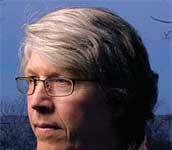
From Inside Higher Ed:
Open-source textbooks, long considered a promising way to cut costs but still not widely used, could become more readily available and easily vetted as a University of Minnesota project expands.
Minnesota launched an online catalog of open-source books last month and will pay its professors $500 each time they post an evaluation of one of those books. (Faculty members elsewhere are welcome to post their own reviews, but they won’t be compensated.) Minnesota professors who have already adopted open-source texts will also receive $500, with all of the money coming from donor funds.
The project is meant to address two faculty critiques of open-source texts: they are hard to locate and they are of indeterminate quality. By building up a peer-reviewed collection of textbooks, available to instructors anywhere, Minnesota officials hope to provide some of the same quality control that historically has come from publishers of traditional textbooks.
…
The goal of the Minnesota database is to curate texts in a way that empowers instead of frustrating professors. Material posted in the catalog must have an open license, be a complete book, have a print version and be adoptable outside the author’s institution. Minnesota isn’t creating any of the books, just assembling the best of what’s been published elsewhere. The catalog includes texts from Rice University, which launched a series of peer-reviewed open-source books earlier this year.
About 90 books are now in Minnesota’s catalog, which has had thousands of visitors since its launch two weeks ago. Eleven Minnesota faculty members have offered to review books, other Big Ten universities have talked about getting involved and encouraging messages have poured in from as far away as Zimbabwe. Professors can browse open-source materials by subject area and read them online. The books are largely concentrated in entry-level math and science courses, but there are also titles in business communication, oceanography and other more specialized subjects.
More in the article. Thanks to Michael von Glahn for the link.































There is a growing need to open source textbooks and this move is in a right direction. I really think that students should be taught to think like historians, to think like scientists and not just base their ideas in textbooks. Minnesota is doing a great job in this respect.
Jules of BookGator.com